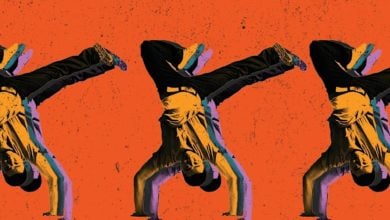On April 9, legendary American rapper DMX — born Earl Simmons — passed away from a heart attack suffered on April 3.
DMX was born in Mount Vernon, New York, in 1970 and grew up in the city of Yonkers. Over the course of his quarter-century career, DMX released seven albums, five of which went platinum or multi-platinum. DMX was the only rapper whose first five albums dominated the billboard charts at No. 1.
His music was beloved and renowned for its raw honesty and introspective emotionalism. For all the love he received from millions of working-class fans, DMX was met with hostility from the corporate media and the music industry.
Lifelong battle with the media and music industry
As soon as the story of DMX’s heart attack broke on April 3, many news sources speculated that the heart attack was a result of a relapse into drug use. They had no grounds for this speculation, as those close to DMX had made no such statement.
Those with substance abuse disorder are dehumanized in this way by the capitalist U.S. media. Once someone is addicted to a drug, they are portrayed as subhuman. Their entire identity is reduced to addiction. Rather than being shown compassion, they are treated as hopeless and degenerate.
Poverty, abuse, and neglect were central themes in DMX’s childhood. While his passion for music would become his solace, throughout his life, DMX fought to overcome addiction. In an interview with hip-hop artist and interviewer Talib Kweli, DMX stated that at age 14, his mentor introduced him to crack without DMX’s knowledge. But the media treated this struggle as a joke — as just another spectacle to capitalize on.
Just three days after DMX suffered his ultimately fatal heart attack, the New York Post ran a story on homes DMX had lost throughout his career. These losses were used to perpetuate the unrealistic demand that all those facing addiction must do is “just say no.”
Though many experts have concluded that substance-abuse disorder is a complex biological-psychological-social condition, not the result of moral failure. To this day, mainstream media pundits push the narrative that quitting is simply a choice.
The media makes far too much money from fear-mongering, attempting to inspire hopelessness in oppressed people and inspiring racism. They bombard people with stories about new drugs and drug-related offenses but never offer solutions or analysis about why these problems exist.
Both the media and the music industry used the struggles that DMX faced to make millions of dollars while he suffered. After transitioning into the movie industry, DMX spoke to the exploitation of the music industry.
Speaking of the record label Def Jam, he said: “I made $144 million for them in one year, guess what they gave me? They didn’t give me sh*t. What they did was, they loaned me 3 [million dollars] towards my next album.”
DMX also criticized the practice of record labels owning rights to the records even after settling the debt. “In music, the highest paid artists get 18 cents off a dollar and the record company still owns their product even though they paid for it. It’s like straight robbery,” he said in a press conference in 2004.
Weaponization of addiction
Over the centuries, drugs have been used by the ruling-classes of colonial and imperialist countries to maintain power over colonized populations. One notable and historic example of this was during the colonization of China by Britain, in the 19th century.
British traders smuggled opium into China to keep much of the population addicted — as part of Britain’s ploy to gain control over parts of China. This led to the Opium Wars, fought after the British government refused to end pumping opium into China at the demand of the Chinese government.
A similar tactic was used by the United States in the 1980s under Ronald Reagan’s administration. In Nicaragua, the United States backed the Contras, a reactionary terrorist organization, against the Sandinista National Liberation Front.
The Contras funded their operations through drug trafficking. As part of their aid to the Contras, the CIA played a critical role in facilitating the flow of cocaine from the Contras into Los Angeles, California. This was the root of what is popularly known as the crack epidemic. Crack, a potent and cheaper form of cocaine, was pumped into poor Black and other oppressed communities from coast to coast.
Legal penalties for crack-related offenses were increased far beyond those involving powder cocaine, at a 100:1 rate — disproportionately impacting oppressed communities, as intended. Massive numbers of poor people became addicted to crack — and the prison population skyrocketed, adding to the rise in mass incarceration.
Today, another drug epidemic is taking lives: a nationwide opioid addiction.
It is slowly being acknowledged in the mainstream that we are in the midst of an opioid and overdose epidemic. But the finger of blame is rarely pointed at the real culprits: the pharmaceutical companies that manufacture and distribute opioids — and the pharmacies and physicians that aid and abet.
Many people suffering from opioid addiction began with prescribed opioids. The over-prescription of opioids began in 1990s. In the United States, where health care is a private commodity, it is a cost-saving venture to prescribe opioid painkillers rather than provide alternative therapies.
Some 2,500 cities and towns in the United States have filed civil action lawsuits against over 25 profit-driven pharmaceutical companies for flooding the country with opioids. Between 2006 and 2014, over 100 billion pills were pumped into the market. These companies made billions in profits as more and more people became addicted to opioids.
While the ultra-rich profit off addiction, the capitalist system provides little to no actual help to victims of addiction. In the wealthiest country in the world, there is an embarrassing lack of resources allocated to preventing addiction or supporting treatment and recovery — especially if the poor and working-class.
The capitalist system — and the political leadership that upholds it — is incapable of resolving the social crisis of addiction because it both fuels and benefits from it. There is a dire need for a new system in which the profit motive is not a factor.
The passing of DMX is a tragic loss. His music touched the lives of many. DMX’s story will be remembered as one of struggle and survival in an inhumane system that refuses to see the humanity of those who experience substance use disorder.





